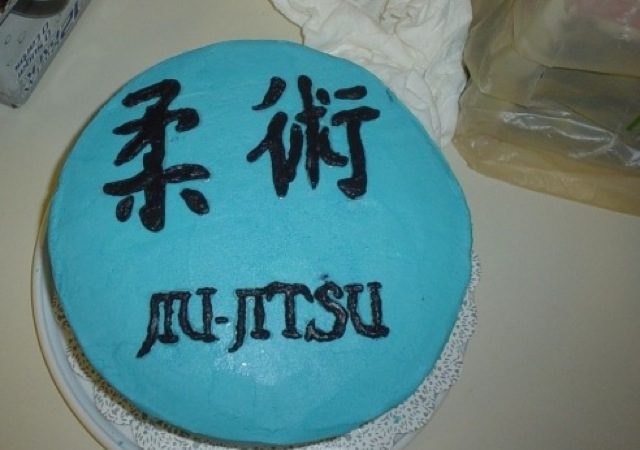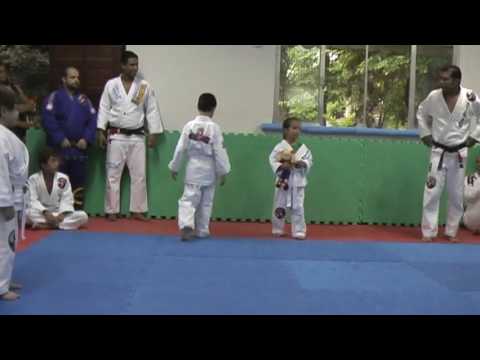
Gone are the days when Jiu-Jitsu and the other martial arts were only for men. In present times, talk of how sport fighting is good for the bones, muscles and minds of men and women alike has been done to death. Still, in an article signed by Natália Leão recently published in Brazil’s for-females magazine Boa Forma, the subject gained further reinforcement.
As evidenced in the article, there is a simple and miraculous formula for recovering physical form and self-esteem: sign up at a martial arts school. “There’s no lack of benefits: besides slimming down and gaining muscle definition, it relieves stress, sex becomes better and it bolsters your self-esteem,” the author asserts.
Once seen as brutish, the practice of martial arts is now recognized as an exercise that aggressively combats flab. “The idea isn’t to hurt or show you’re better than your adversary. What you gain from practicing a martial art is loss of fat, relaxation and overall improved health,” Leão further claims.
Take a look at just a few of the benefits Jiu-Jitsu and other arts offer their practitioners:
1. JIU-JITSU AND SHEDDING FAT
A study by the University of North Carolina found that intense exercise—that is, ones that places a high demand of oxygen on the circulatory system—can prolong calorie burning for up to 14 hours after training.
2. JIU-JITSU AND MUSCLE TONE
If you’re a woman, don’t be afraid that by training you’ll be stuck with bulging biceps or a manly bod. Such exercise doesn’t pump up your muscles—quite the contrary. “Besides being great for burning fat, the practice defines your body without bulking you up. Martial arts don’t cause hypertrophy,” explains Mauro Cardaci, fight sport coordinator for Bodytech gym in São Paulo.
3. STRESSED? HIT THE MAT!
You know those days when you’re biting your tongue not to tell your boss to go take a hike? Letting your inner beast off the leash in the ring is a surefire way to rein in your angst at such times and expunge the anxieties of day-to-day life. “All the different martial arts are great for eliminating repressed inner energy and recovering your balance and calm,” says sport psychologist João Ricardo Cozac of São Paulo.
4. SEX DRIVE THROUGH THE ROOF WITH JIU-JITSU
When you start practicing a martial art you feel more capable, powerful and self-confident. Not to mention the changes your body undergoes, becoming stronger and better defined. All that does a fine job of improving your performance in the sack; after all, self-esteem is what counts most between the covers. Add to that the benefit of other skills that such training provides—flexibility, agility and endurance—and the product is more energy and fun for the both of you.
5. FIGHT SPORTS ARE GOOD FOR THE BRAIN
In martial arts, mental training is just as important as physical conditioning and strength—controlling emotions and negative thoughts during a bout is the secret to victory. “In class you need to focus on the opponent and pay attention, to coordinate the moves,” explains Fábio Grieco. Research from Unifesp, the federal university of São Paulo, concludes that practicing martial arts improves levels of concentration in children and young people suffering from attention deficit disorder, reducing the hindrance the disturbance would otherwise cause in their adult lives. If you aspire to have a longer attention span at work and better memory (remembering friends’ birthdays, where you left the car keys…), you have plenty to gain by making training a regular part of your routine.
6. POSTURE AND ROCK-SOLID ABS
That flat, well-defined belly martial arts practitioners enjoy is the result of the heavy workout their routine places on their core (the muscle group running down the body that includes the abs, glutes and lower back). In other words, it works the muscles that hold up your spine. Furthermore, strengthening these muscles is critical to stabilizing your back, straightening out your posture and preventing back pain. Anyone who has ever had back troubles should avoid taking up a martial art before consulting a doctor and the teacher of the class to find out whether or not they’re fit for such activities, though.



